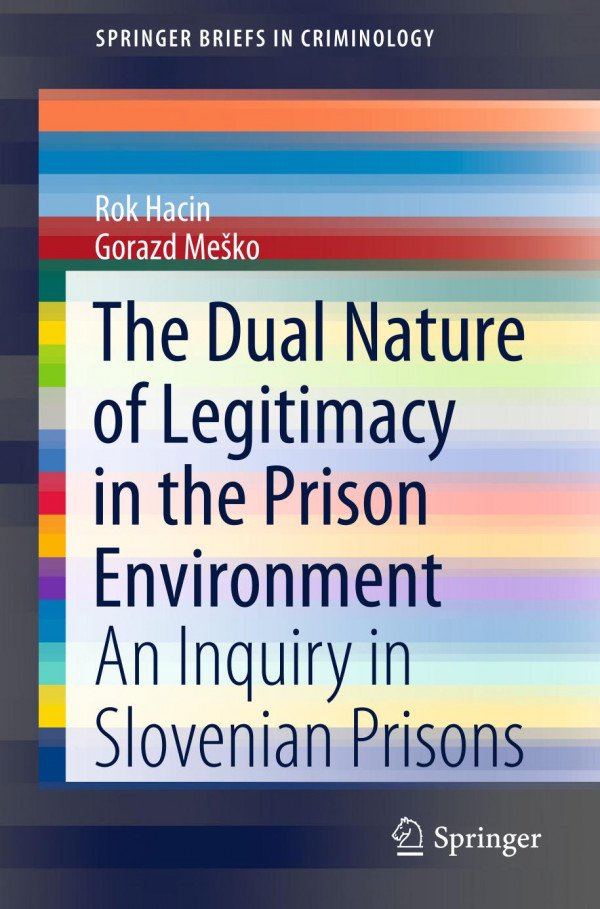

Most ebook files are in PDF format, so you can easily read them using various software such as Foxit Reader or directly on the Google Chrome browser.
Some ebook files are released by publishers in other formats such as .awz, .mobi, .epub, .fb2, etc. You may need to install specific software to read these formats on mobile/PC, such as Calibre.
Please read the tutorial at this link: https://ebookbell.com/faq
We offer FREE conversion to the popular formats you request; however, this may take some time. Therefore, right after payment, please email us, and we will try to provide the service as quickly as possible.
For some exceptional file formats or broken links (if any), please refrain from opening any disputes. Instead, email us first, and we will try to assist within a maximum of 6 hours.
EbookBell Team

4.0
26 reviewsThis book explores the dual nature of legitimacy in prison. It examines the inter-connectivity between audience perception of legitimacy (the prisoners’ perception) and the power-holders’ perception of legitimacy (the prison staff perception). It defines legitimacy in this scenario as the ability of prison workers to implement their authority in an honest, lawful, and just manner, while prisoners acknowledge their status as eligible power-holders who deserve to be obeyed and comply with their decisions.
Using mixed methods of qualitative and quantitative research, data were collected in all Slovenian prisons as well as a correctional home. The volume discusses the various factors influencing prisoner's perspective of legitimacy, and recommends avenues for further research.
This work will be of interest to researchers in criminology and criminal justice, particularly with an interest in prison and incarceration, or with an interest in Eastern Europe. It will also be of interest to those studying legitimacy within the criminal justice system more generally, and related fields such as sociology, law enforcement, and organizational psychology.
-Rosemary L. Gido, Professor Emerita, Department of Criminology and Criminal Justice, Indiana University of Pennsylvania, USA
This book studies legitimacy in prisoners and among prison staff through the lens of procedural justice theory, focusing on the context of Slovenia. The book is a must–read for scholars who are theoretically and methodologically interested in testing and applying procedural justice theory. Rarely, both prison staff and prisoners are studied in the same inquiry. This is the added value. The results have value for prison policy. This book will be of interest to scholars in criminology and criminal justice, as well as political science and public policy.
- Lieven Pauwels, Professor, Department of Criminology, Criminal Law and Social Law, Ghent University, BelgiumThe now global epistemic community for the study of criminal justice and criminology requires that scholars everywhere be in frequent communication, and that they engage in the testing of concepts that are of potential universal application in democratic countries seeking to build just and efficacious public institutions. The time is here for comparative criminal justice research of high quality to be undertaken, and this book represents exemplary scholarship in this regard.
For those scholars from around the world interested in determining the potential and limitations of the theory of procedural justice as applied in the corrections setting, this book represents a “must read” for you. It presents findings from a comprehensive, mixed–methods study of how the core concepts of the theory of procedural justice can be insightfully explored within correctional institutions. The study done in the progressive, highly regarded setting of the Slovenian prison system – carried out with inmates, prison staff (corrections officers and rehabilitation services personnel) and administrators – serves as an excellent template for replication in other countries. The interpretation of findings made by two scholars of remarkable experience and profound knowledge add greatly to the value of this book. For scholars doing worthwhile research into the challenges of building and maintaining just and capable criminal justice systems in democratic countries, this book will inform and inspire you.
- Nicholas Lovrich, Research Professor Emeritus, Department of Criminal Justice and Criminology, Washington State University, Pullman, USA